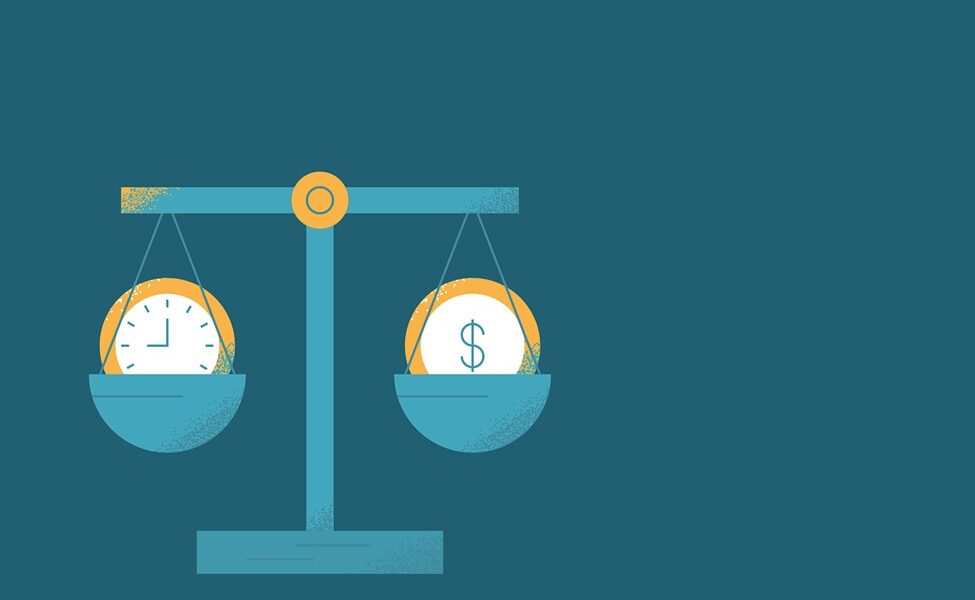There are now more and better ways to manage your money online than ever before in this digital world. People can keep track of their spending, save for future goals, and trade without having to leave the comfort of their own homes thanks to a number of tools and platforms. However, some people find it hard to find their way around the world of online money management. Here are some important tips for handling your money well online that will help you get back in charge of your finances.
- Pick an honest budgeting app
Making a budget is the first step to good money management. Luckily, there are a lot of online tools and apps that make it easy to keep track of your income and spending. Pick the one that works best for your wants and financial goals
Use apps like YNAB (You Need A Budget) or Mint to keep track of all your bank accounts, credit cards, and savings in one place. This gives you a full picture of your financial health.
Categories that can be changed: If you want to keep better track of where your money is going, look for tools that let you set your own groups, like “groceries,” “entertainment,” and “savings.”
Using an online planning tool keeps you on track with your budget and helps you see how you’re spending your money.
- Put your savings on autopilot
Setting up a routine to save is one of the best ways to make sure you do it every time. It is possible to set up automatic payments from your checking account to your savings account on most online banking sites. Which means that some of your money is saved before you can spend it.
- High-yield savings accounts: If you want to save money, you might want to start an online high-yield savings account. These accounts usually have better interest rates than regular savings accounts. Putting money into this account automatically can help your savings grow faster.
- Set goals for saving: You can use apps like Simple or Qapital to set up automatic savings for things like a trip, an emergency fund, or a down payment on a house.
- You can slowly build up your wealth without giving in to the urge to spend by setting up regular savings.
- Keep an eye on your credit score Every time
It’s important to know your credit score because it affects your ability to get loans, credit cards, and even rent. You can keep an eye on your credit health by using the many websites that let you track your credit score for free.
- Free tools to check your credit report: Credit Karma and Credit Sesame are two services that let you see your credit score for free and give you personalized advice on how to improve it.
- Don’t lose your reports: You can get a free copy of your credit report from each of the three big credit bureaus once a year at AnnualCreditReport.com. Keeping an eye on your credit report can help you find mistakes or signs of scam early on.
- If you keep an eye on your credit score, you can make smart choices that will help your finances.
- Combine all of your accounts
It can be hard to keep track of all your different bank accounts. If it’s hard to keep track of all your different accounts, you might want to use a financial organizer to combine them all into one.
- Personal finance apps, such as Personal Capital, put all of your accounts together in one place. This includes your checks, savings, loans, credit cards, and investments. This gives you a full picture of your money problems and helps you choose better solutions.
- Cut down on accounts you don’t need. If you have too many accounts at different banks, you might want to close or merge accounts you don’t use very often.
- It can be easier to handle and keep track of your money if you make your finances simpler.
- Put your money into online platforms
There are now online investment platforms that make it easy for people to buy stocks, bonds, mutual funds, and other assets. Most of the time, these platforms have lower fees than standard brokers, which makes investing easier for more people.
- Robo-advisors, such as Betterment or Wealthfront, use algorithms to build and run a diversified investment portfolio for you based on your financial goals and level of comfort with risk. They’re great for people who are new to buying or just want to sit back and let the money grow.
- If you want to be more in charge of your investments, you can use platforms like Robinhood or E*TRADE to do it yourself. These platforms let you buy and sell stocks, ETFs, and other securities from your phone or computer.
- Over time, investing online can help you get richer, especially if you start early and keep at it.
- Use a service to pay your bills online
It can take a lot of time to pay bills by hand, and you might forget to do it sometimes. Most banks let you pay your bills online, and some even let you set up automatic payments for things like credit cards, rent, and utilities.
- Set up automatic bill payments. To avoid late fees and make sure bills are paid on time, set up scheduled payments through your bank or directly with service providers.
- Track future bills: Keep track of all your upcoming bills in one place with an app like Prism. This will help you remember when they’re due and how much you owe.
- When you automate your bill payments, you never miss a due date, and it’s less stressful than making payments by hand.
- Set up a fund for emergencies
Having an emergency fund is an important part of managing your money because it makes sure you’re ready for things like hospital bills, car repairs, or losing your job. A lot of online banks make it easy to set up automatic payments and open a separate account just for your emergency fund.
- Set goals that you can actually reach. Most financial experts say that you should have three to six months’ worth of living costs saved up in case of an emergency. Set small goals that you can reach at first, and as time goes on, slowly raise the amount.
- Make a new account: Keep your emergency fund in a different account that is easy to get to, like an online savings account. This hides the money but still lets you get it when you need it.
- When you need money quickly, having an emergency fund can save you from having to take out high-interest loans or charge your credit cards.
- Use the Internet safely
Managing your money online is convenient, but you need to make sure that your private information is safe. When you use online financial services, security should be your first concern.
- Use strong, unique passwords. For example, make passwords for your bank accounts that are hard to guess, and never use the same password on more than one site. To make and keep strong passwords, you might want to use a password manager like LastPass.
- Turn on two-factor authentication (2FA). For extra security, many banking platforms offer two-factor authentication. To do this, you need to prove who you are using a second way, like a text message or an authentication app.
- Keep an eye on your accounts often: Regularly check your accounts for any strange behavior. You should tell your bank right away if you see any transactions that you didn’t approve.
- You can keep your money safe from scams and identity theft by being careful and following safe habits.
- Keep an eye on money trends
It is important to know about market changes and financial trends in order to stay ahead of the game. You can learn about personal finance and investment strategies by using the many online tools that are available.
- Read blogs and pages about money: If you want to learn more about money, check out sites like NerdWallet, Investopedia, and The Financial Diet. They have great tips on everything from budgeting to investment. For professional financial services, explore local platforms like which offer expertise on managing wealth and investments.
- Keep up with market news: You can use apps like CNBC, Bloomberg, or MarketWatch to stay up to date on economic news, stock market trends, and other financial news that could affect your interests.
- Find out about financial trends. This will help you make smarter choices and adjust to changes in the market.
- Look over and make changes often
It’s easy to set up online tools for managing your money and forget about them, but it’s still important to check in on your plans and make changes as needed. If your life changes, your pay changes, or your financial goals change, you need to look at your financial plan again.
- Reviews every month or three months: Make time to look over your finances every so often. This helps you keep track of your progress toward your goals, see where you need to improve, and make the necessary changes.
- Make changes to your budget: If your income or costs change, you should make changes to your budget to reflect that. Making this a habit will help you stick to your spending and saving plans.
- You can stay on top of your finances and make smart changes to improve your overall well-being by regularly reviewing them.
Managing your money online gives you more freedom, power, and information than ever before. You can be in charge of your financial future if you use the right tools, set up automatic saves, keep your accounts safe, and stay informed. For long-term financial stability, you’ll want to handle your money online in a smart way. This will help you reach your financial goals.





